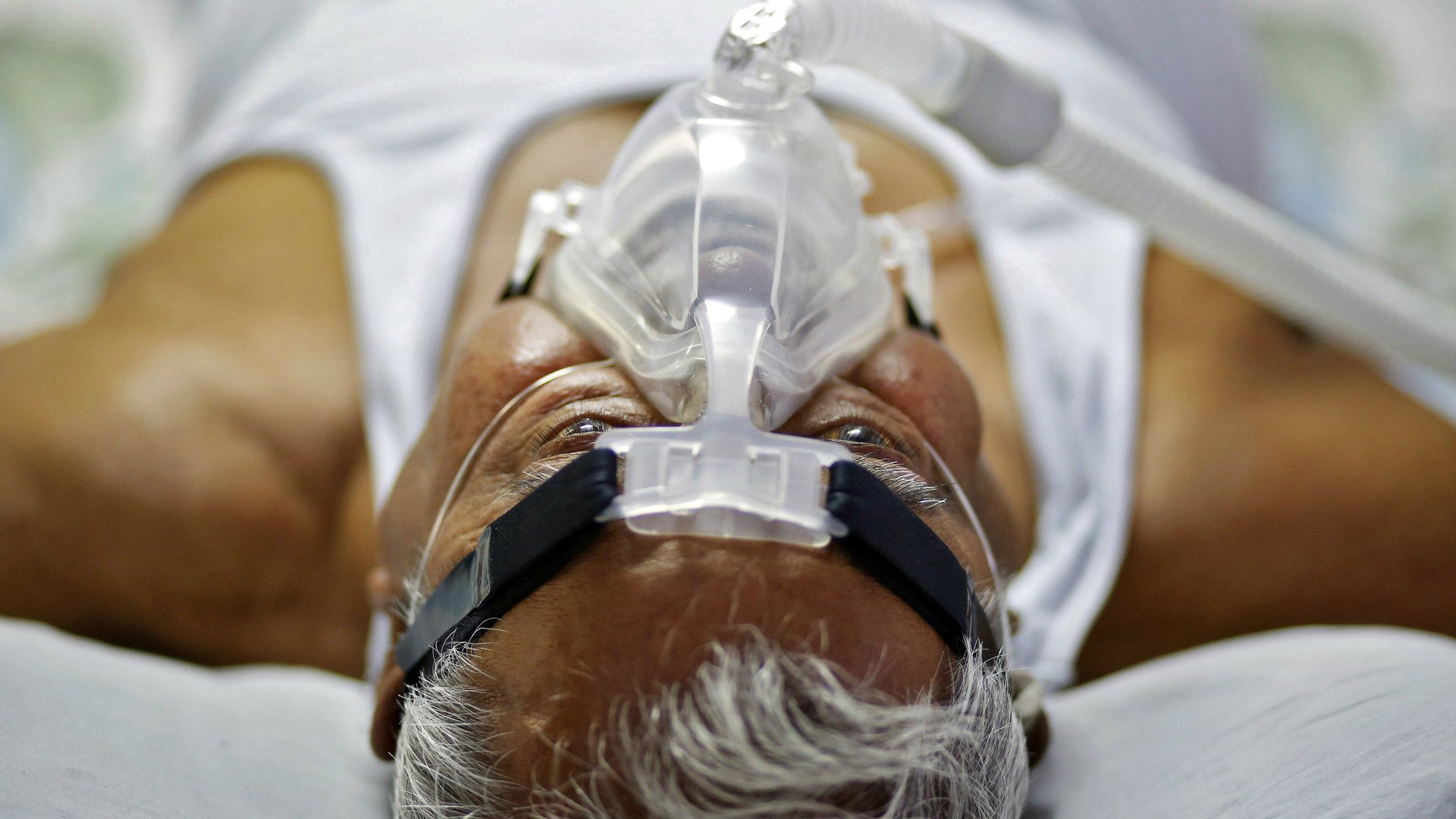How a doctor with cancer quantified the value of life support
“If I die” is a quintessentially American phrase, a bit of semantic sloppiness that reveals our state of denial about death. We don’t use the phrase to boast of immortality, but to avoid the twinge of uneasiness that comes from saying, “When I die.” Acknowledging the inevitability of death raises questions about when and how it will happen, and that is not something that we are comfortable thinking about.


“If I die” is a quintessentially American phrase, a bit of semantic sloppiness that reveals our state of denial about death. We don’t use the phrase to boast of immortality, but to avoid the twinge of uneasiness that comes from saying, “When I die.” Acknowledging the inevitability of death raises questions about when and how it will happen, and that is not something that we are comfortable thinking about.
When I was diagnosed with cancer, even though I had a decent chance of surviving it, I knew that it was time to have a conversation with my husband about how I want to die, and the conversation couldn’t be “If there’s no hope, let me go.” My husband is an unrelenting optimist with enormous faith in the power of human ingenuity. If I give him wiggle room, he will hold out for a miracle, and I don’t want to die by inches.
As a physician working in the intensive care unit, I have learned that traditional advance directives are almost entirely useless. At best they are too vague to serve as roadmaps for caregivers, and at worst they interfere with the provision of good care. Doctors and nurses don’t need to be told what treatments they can and cannot provide; they need to understand their patients’ priorities and goals. A statement such as, “You can do CPR but you can’t put me on a breathing machine” provides no guidance for myriad other important medical decisions and can lead to unintended consequences, such as withholding pain medication for fear of compromising respiration. “I want to live until my grandson’s wedding if at all possible, but my first priority is to be comfortable for whatever time I have left” would be a more helpful statement.
I explained my wishes to my husband in the context of expected value, which is calculated by multiplying possible outcomes by the likelihood that the outcome will occur. For instance, the opportunity to win $1 in a coin flip has an expected value of fifty cents. The opportunity to win $3 on a die toss also has an expected value of fifty cents, because while the probability of winning is lower, the payoff is proportionately bigger. It makes sense to pay a quarter to participate in either wager, but it makes no sense to pay seventy-five cents.
“What I value most,” I told him, “is good quality time interacting with my family and friends at home. I’m willing to be hooked up to any machine or put through any treatment as long as the doctors can look you in the eye and tell you that there’s at least a 10% chance that I’m going home and staying alive for six months.” If I only have a month to live, the doctor would need to assure him that I had better than a 50/50 chance of going home in order to achieve the same expected value. My husband initially objected, saying something like, “How can I pull the plug if they’re telling me there’s any chance of you living another month?” My answer was that I wasn’t willing to pay the required price for that lottery ticket.
Miracles do occur, in the sense that very low probability events sometimes come to pass. Doctors and nurses who work in the intensive care unit know, however, that the price of the health lottery can be prohibitively high. The ICU is so harrowing that survivors are diagnosed with post-traumatic stress disorder at the same rate as combat soldiers. Even when patients are comatose, and hopefully no longer suffering, families have to bear the pain of watching their loved one die over the course of days, weeks or sometimes months. Financial burdens, disruption to work or school life and emotional exhaustion are not prices I want my family to pay if the overwhelmingly most likely outcome is a long, slow death.
Not everyone values the same things in life, and not everyone agrees about what costs are appropriate to pay. Everyone should be capable of deciding what quality of life would be personally acceptable, however, and what probability of achieving that goal seems reasonable. An 80-year-old with chronic illness might accept invasive treatments if he had a good chance of getting to a nursing home and receiving visits from his grandchildren. A mother of teenagers might do the same for even a minuscule chance of getting to her son’s high school graduation. Every person is different, and that’s why these thoughts need to be communicated. To wit, my husband wants to be kept alive unless there is absolutely no hope of improvement. It’s not what I would choose for myself, but now we both have the valuable roadmaps we need to honor one another’s wishes when, not if, we approach death.